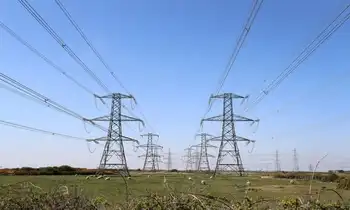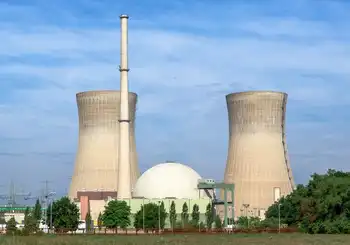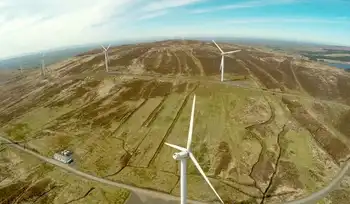Iran used plutonium longer than admitted: Report
VIENNA, AUSTRIA - Iran has acknowledged working with small amounts of plutonium, a possible nuclear arms component, for years longer than it originally admitted, said a confidential UN report made available recently.
The report, to be delivered to a board meeting of the International Atomic Energy Agency, also said the Islamic republic received sensitive technology that can be used as part of a weapons program earlier than it originally said it did.
While not proving or disproving Iran had weapons ambitions, the details are significant as the agency tries to piece together the puzzle of nearly 18 years of a clandestine nuclear program first revealed in February 2002.
Marked "highly confidential," the report to the UN nuclear monitor was made available by a diplomat accredited to the agency who demanded anonymity because he is not authorized to release such information to the news media.
The three-page report took stock of the present stage of a more-than-three-year probe of Iran's nuclear activities. It suggested some of the investigations were stalled, saying: "The agency still needs to understand" the nature, dates and number of contacts between Iranian officials and nuclear black market intermediaries that supplied Tehran with much of its advanced technology — including centrifuges for uranium-enrichment.
The IAEA first revealed Iran produced small amounts of plutonium as part of covert nuclear activities in November 2003, more than a year after revelations Iran had run a secret atomic program led the agency to start investigating the country.
The agency has not linked the laboratory-scale experiments to weapons activity, nor has it said any other parts of the program — including ambitious efforts to be able to enrich uranium — constituted evidence Tehran has been trying to make weapons. But at the time, it criticized Tehran for not voluntarily revealing its plutonium work and other activities that could be linked to interest in making nuclear arms.
Plutonium can be used in nuclear weapons but also has uses in peaceful programs to generate power — which is what Iran said is the sole purpose of its nuclear activities.
The document obtained Wednesday said while Iran had said its plutonium-separation experiments were conducted in 1993 "and that no plutonium had been separated since then," Iranian officials revealed two months ago there had been linked experiments in 1995 and 1998.
Focusing on shipments of equipment for uranium-enrichment — another technology that can be used in making weapons — the report said Tehran earlier this year provided documents showing in at least two instances some components arrived in 1994 and 1995.
Those dates "deviate from information provided earlier by Iran," said the report, adding one particular delivery had earlier been said to have reached the country in 1997.
Such discrepancies are important in agency investigations trying to establish how long Iran has been trying to assemble a program for enrichment, which can generate both fuel for power and weapons-grade uranium.
The report also outlined discrepancies about when Iranian officials said the first meetings with nuclear black marketeers were. It said clearing up inconsistencies about the shipments are essential to ensure "that there has been no other development or acquisition of enrichment design, technology or components by Iran.
Senior Iranian envoy Sirus Nasseri did not dispute the report's findings but said his country is co-operating with the agency.
"I do not think these are significant issues," he said.
As the agency's investigation has unfolded, Iran has acknowledged purchasing much of its nuclear technology on the black market. But it asserts its nuclear ambitions do not go beyond generating power.
The United States insists nearly two decades of clandestine activities revealed only three years ago indicate attempts by Iran to make weapons. While few other countries are as outspoken as Washington, dozens of countries — including some near Iran — are worried about Tehran's ultimate aims.
A confidential European Union briefing note made available to The Associated Press cited the Saudi deputy foreign affairs minister, Prince Turki bin Mohammed bin Saud al-Kabira, telling European envoys on the weekend: "Iran should co-operate for the safety of the whole region" in ensuring its nuclear aims are peaceful.
Much of the country's nuclear program came from the network headed by Pakistani scientist A.Q. Khan, including the initial technology used in uranium-enrichment.
Iran froze enrichment late last year as it started talks with France, Britain and Germany meant to reduce concerns about Tehran's nuclear ambitions.
The UN nuclear watchdog is pushing Iran to co-operate more with nuclear investigators and agency chief Mohamed ElBaradei told board members Tuesday more information is needed about Iran's uranium enrichment program. The report revealed Wednesday is to be delivered by one of his deputies, Pierre Goldschmidt.
The IAEA became concerned with Iran in 2003, when revelations of nearly two decades of secret nuclear activities surfaced. The work included uranium enrichment.
Related News

National Grid warns of short supply of electricity over next few days
LONDON - National Grid has warned that Britain’s electricity will be in short supply over the next few days after a string of unplanned power plant outages and unusually low wind speeds this week.
The electricity system operator said it will take action to “make sure there is enough generation” during the cold weather spell to prevent a second major blackout in as many years.
“Unusually low wind output coinciding with a number of generator outages means the cushion of spare capacity we operate the system with has been reduced,” the company told its Twitter followers.
“We’re exploring measures and actions to make…




